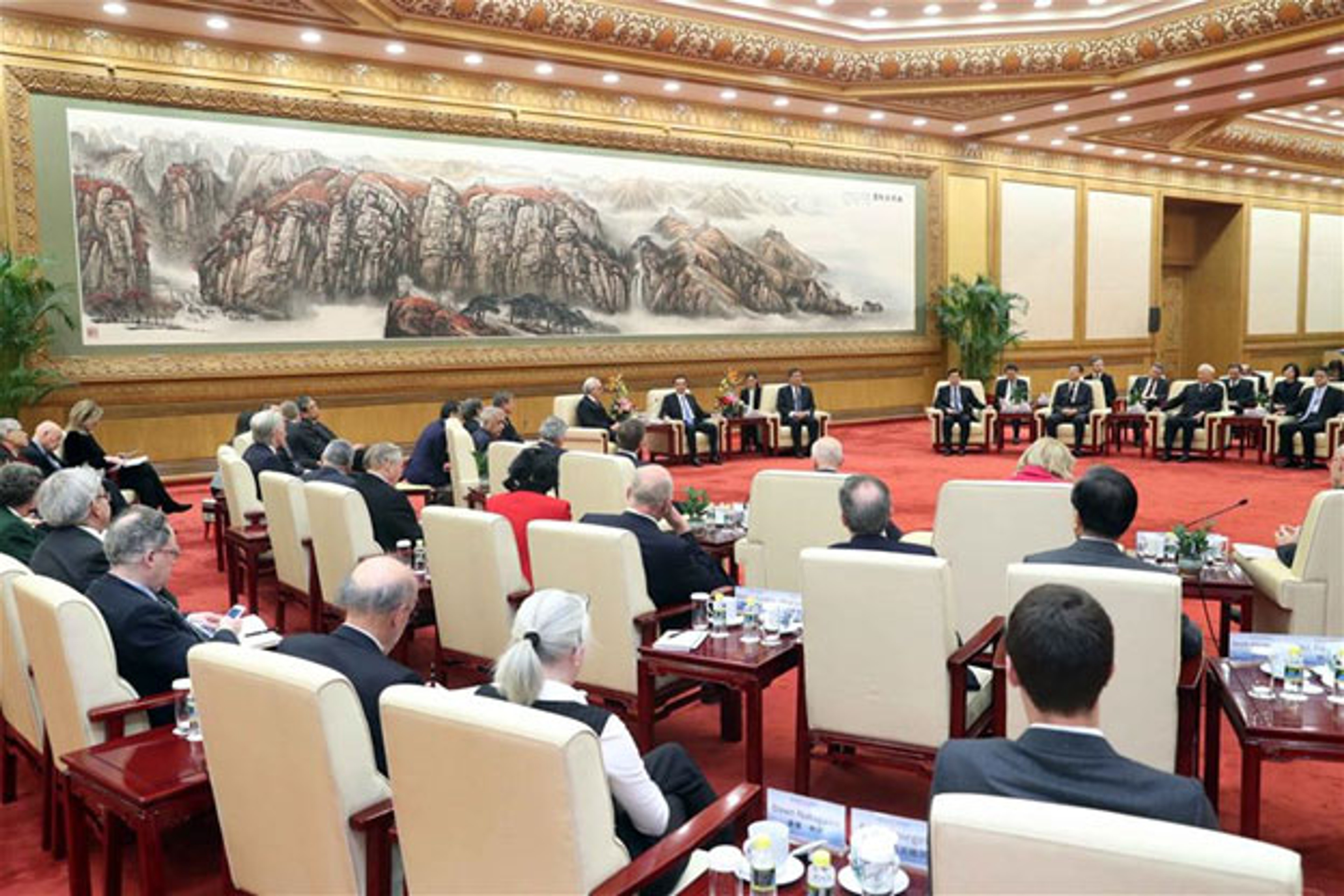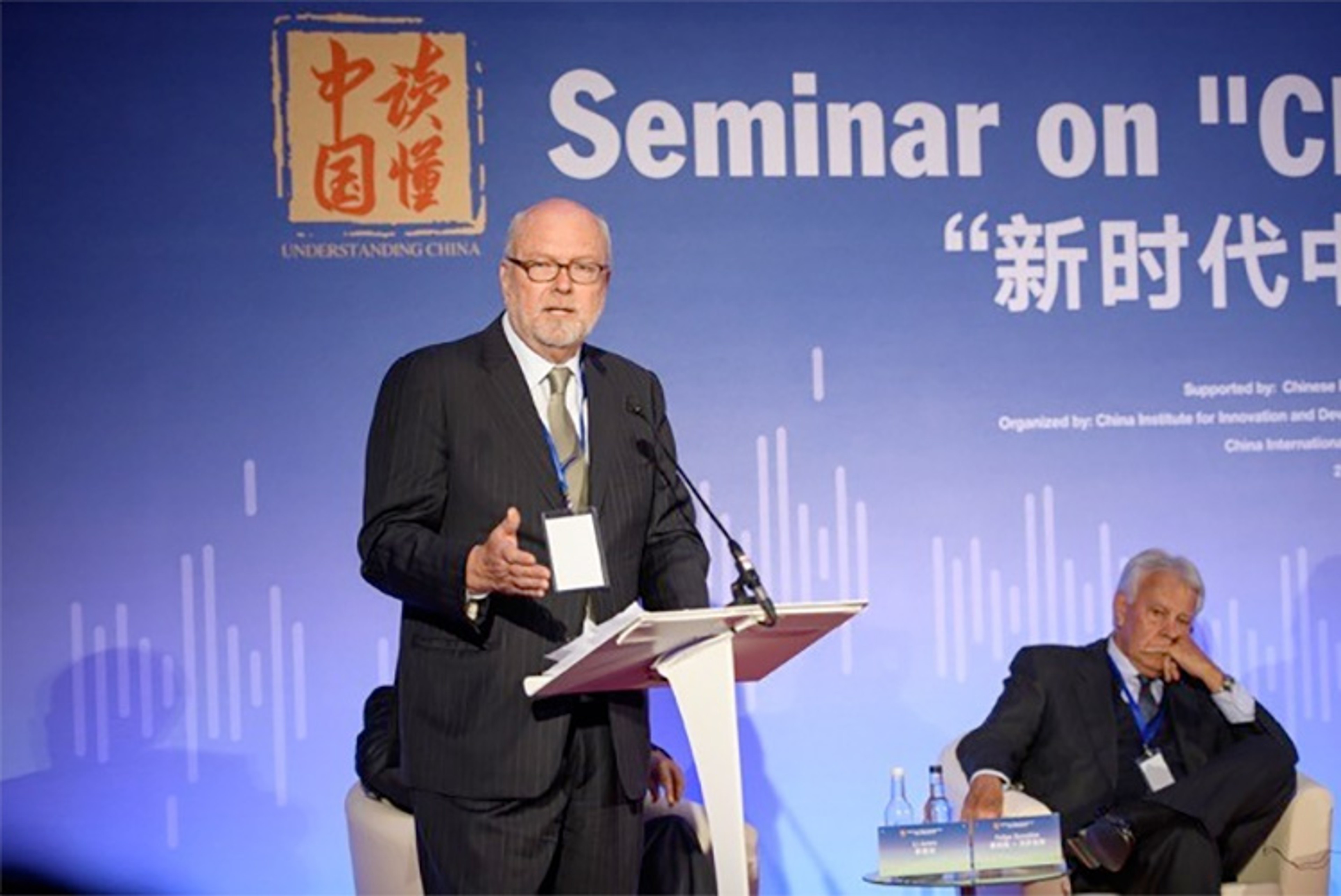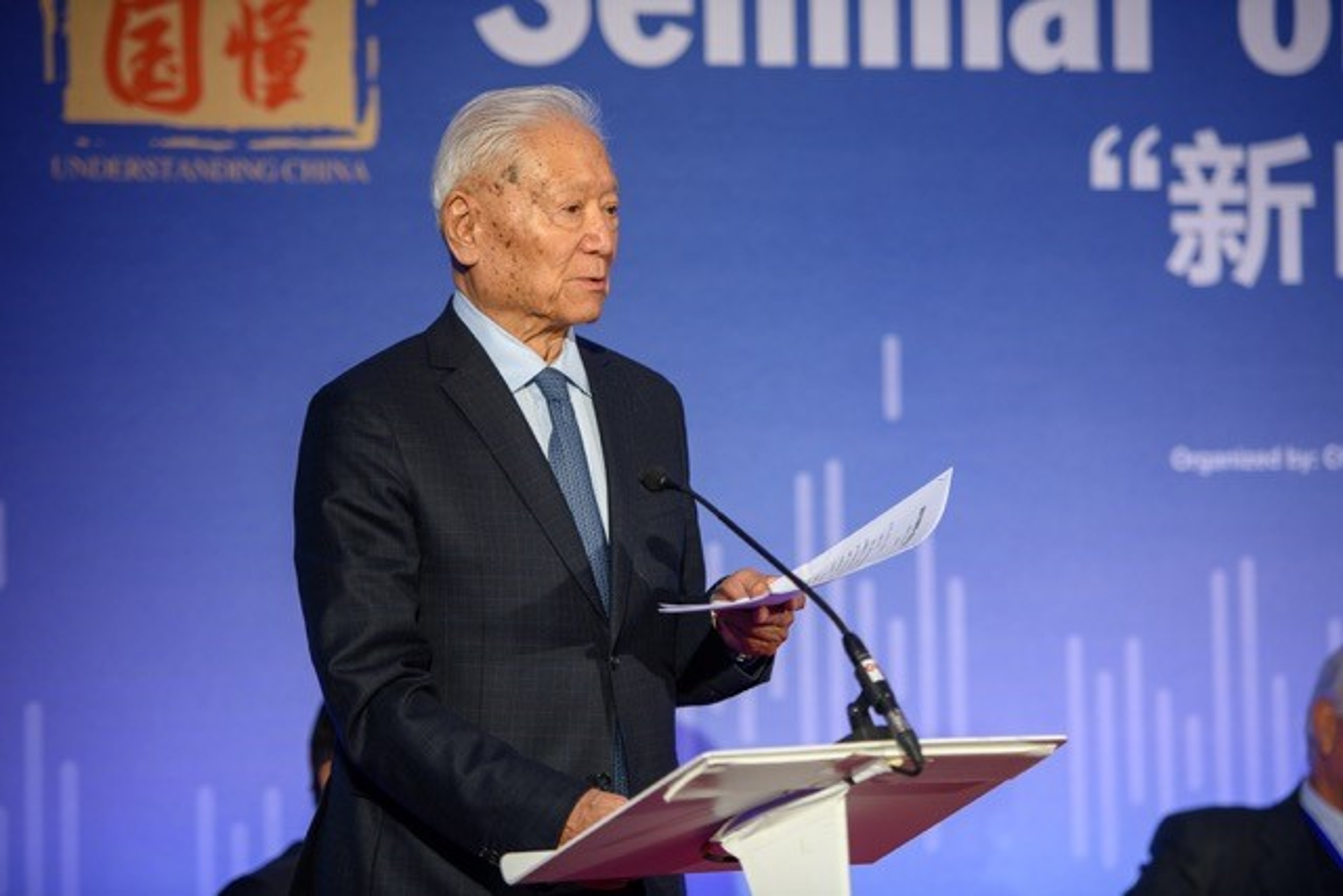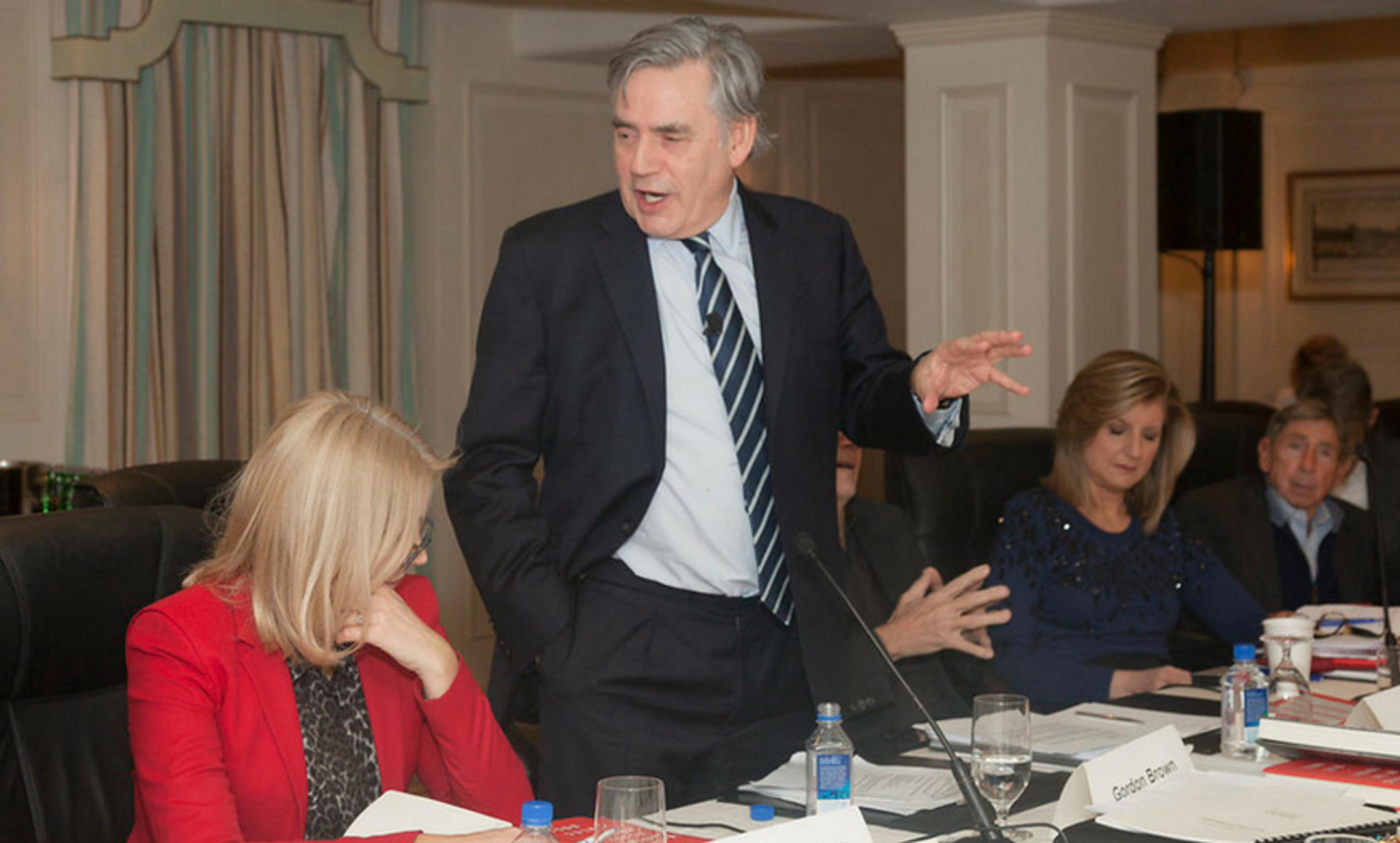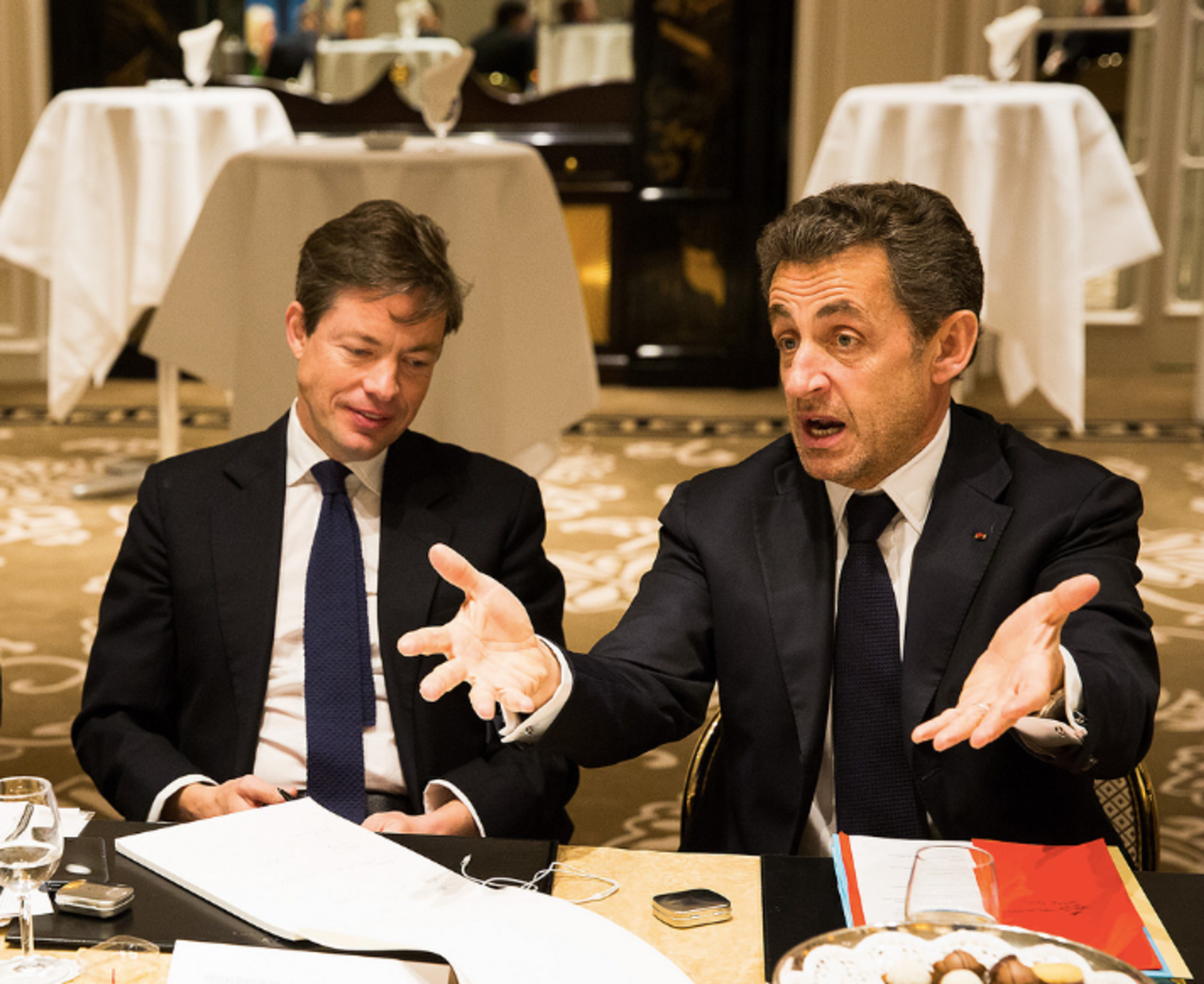Paris 2011: Issues G-20 Recommendations
In October 2011 the 21st Century Council gathered in Paris with then President Nicolas Sarkozy, who has since joined the Council. Several keynote addresses at that meeting laid out the main themes of our deliberations.
Gordon Brown argued that we’ve moved from “international problems to problems that can only be solved globally, from rebalancing our interdependent economies with a growth pact to climate change.” Zheng Bijian called for “expanding on a convergence of interest to build a community of interests” through cooperation among the advanced and emerging economies, particularly on low-carbon growth and maintaining geo-political stability.
Al Gore spelled out in detail how climate change was no longer a “future threat,” but already causing massive damage through extreme weather. Pascal Lamy worried that global governance had reached “stall speed” because legitimacy still rests with the nation state, not international institutions. Nobel laureate Ahmed Zewail reported on the still erupting Arab Spring in Egypt.
PIMCO’s Mohamed El-Erian and Nobel laureate Michael Spence argued that “growth and structural change go together” and that “the G-20 must focus on employment and inclusive growth” or “citizens will be getting off the boat because the system isn’t working for them.” Nouriel Roubini, Ernesto Zedillo, Gerhard Schröder and Felipe González pointed out the risk to the entire global economy if Europe “implodes” over the crisis of the euro.
LinkedIn’s Reid Hoffman and Google’s Jared Cohen extolled the “distributed power of networks” that challenge sovereignty as they cross boundaries.
While calling on the G-20 to fulfill its previous commitments from reducing global imbalances to enhancing emerging economy quotas in the IMF, the Council’s key recommendation to President Sarkozy was “to press the G-20 countries to develop a credible global growth and employment strategy that aims at inclusive growth by narrowing the income gap within countries and across national boundaries.”

